Sorted by date Results 126 - 150 of 175
The good news is that the temperature only dropped to 16 below zero last night and the weathermen are predicting a slow warm-up for this week. It’s been quite some time since we have endured a prolonged cold spell like this one. By the time you read this I hope the temperatures are at least back to what will feel like a balmy normal winter temperature for our area. We did receive about a foot of snow here in the Alliance area. Fortunately the wind hasn’t moved the snow around too much and hopefully the snow will settle down and crust before the...

I would like to start off by wishing everyone a very Happy Thanksgiving. I hope all of you are as fortunate as I am to be able to spend the holiday with friends and family. I would also like to thank Ron Bolze, Coordinator for the Nebraska Grazing Lands Coalition and University of Nebraska Extension for hosting Gabe Brown’s presentations last week around the state. I hope all of you who attended these presentations enjoyed them as much as I did. I have heard Gabe speak numerous times about h...

With pheasant hunting season in full swing I thought I would look at some opportunities for recreation in our area. I know we have a recreational opportunity in our region for attracting pheasant and deer hunters to our area on a much larger scale than what is currently available. If you provide a good hunting environment for these hunters there is a real opportunity for increasing farm income and benefiting the businesses in our communities. There are many hunters along the Front Range of Color...
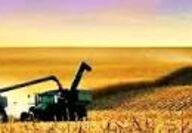
We finally were able to start combining our irrigated corn yesterday afternoon as the moisture in the corn dropped to below 16% which was welcome news. Overnight it snowed about 4 inches, so we're back in a holding pattern again. This has been a familiar pattern this fall planting and harvesting season. I was visiting with a good friend of mine who was comparing his sugar beet harvest to the crab fishermen on the television show "Deadliest Catch". He felt his sugar beet harvest was similar to...
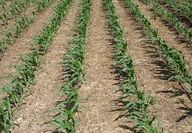
The following is a press release sent to me by Dr. Ron Bolze, professor at Chadron State College. I think this is one of the most important meetings that everyone involved in production agriculture needs to attend. I've known Gabe Brown for several years and have visited his farm to see for myself what Gabe has done to improve the soil on his farm and the profitability of his operation. Gabe's message to the audience about how to improve the health of the soil on your farm to increase... Full story

As I mentioned in a previous article I had a nice visit with Dr. Jeff Bradshaw about the wheat stem sawfly. Dr. Bradshaw has since sent me an article about the wheat stem sawfly and some management practices producers may want to consider for their own operations to begin combating the presence of this insect in their winter wheat production practices. The following is the article Dr. Bradshaw was kind enough to send to me. “A NEW RESURGENCE OF AN OLD PEST OF WHEAT: WHEAT STEM SAWFLY Jeff B...

Last week I was invited to speak to the Nebraska Water Funding Task Force. The NWFTF met in the morning for presentations by John Berge, general manager of the North Platte NRD, Pat O’Brien, general manager of the Upper Niobrara White NRD, and Steve Sibray, hydrogeologist with the University of Nebraska Panhandle Research and Extension Center. After the presentations we boarded a bus and traveled to the Ginn sugar beet facility to learn about the sugar beet industry in Box Butte County. We a...

No-till crop production gives the producer using this system the advantage of managing residues on the soil surface to improve soil structure, water infiltration, and lower soil moisture evaporation. This system enables the producer to improve water management. No-till crop production helps to better manage the moisture Mother Nature provides as well as the water pumped from our groundwater and surface water. Leaving the residues from the previous crop on the soil surface improves water infiltra...
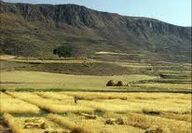
Last week I told you about my experience in talking to students at Chadron State College. I had a great time visiting with these students and hopefully our paths will cross again. I also had the opportunity to visit with Dr. Ron Bolze, the instructor at Chadron State who had invited me to talk to his students about soil health. I was pretty nervous about getting up in front of college students and trying to enlighten a college classroom. I really didn’t feel qualified to speak to students abo... Full story

Last week I had the opportunity to do something that I hadn’t done in 36 years. I walked into a college classroom. I have to admit that it felt like old times watching the students enter the classroom in varying degrees of anticipated learning. Some had just gotten out of bed, some were going through the motions, and others were eagerly awaiting an opportunity to learn. I felt right at home with them and could relate to all their levels of the college experience as I had walked in all their s... Full story
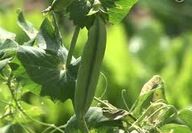
Yellow field pea producers in this region have finished their 2013 harvest which produced good results despite the challenges Mother Nature had in store for this growing season. Throughout my travels around the Panhandle looking at this year’s field pea crop I thought many first time field pea growers did an outstanding job of producing their first field pea crop. There will be a learning curve this first year and I expect any production problems that occurred will be corrected next spring. Y...

The Panhandle No-till Partnership hosted field days in the Sidney, Bridgeport, Berea, and Clinton areas recently. Paul Jasa, UNL Extension Engineer, was able to join us for these field days. Paul has a wealth of knowledge pertaining to all aspects of no-till crop production and I really want to thank Paul for sharing his expertise with our producers. These field days focused primarily on irrigated no-till crop production. No-till producers in our area have really come a long way in improving...

Last week I traveled around the Panhandle to attend various field days. The crops around our region look to be doing pretty well if a hail storm hadn’t hit the fields. There seems to be more hail storms around this year than most years. Almost every producer I visited with had a hail storm somewhere on their farm. I drove to Grant, Neb., to Steve Tucker’s farm to attend a field day hosted by the Colorado Conservation Tillage Association in conjunction with No-till On the Plains. This field wor...
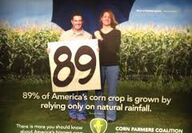
In the last several articles I took a look at how soil microbe populations, forage crops, and grazing cattle on our irrigated field of corn have influenced our fertilizer management on this field. There definitely seems to be a correlation between improving soil health with forage crops following winter wheat and grazing cattle on these crops prior to planting our irrigated corn and nitrogen fertilizer requirements. We have lowered our nitrogen fertilizer in this field by 60 pounds per acre and...

I’ve been writing about my limited experience with cover crops grazed for forage and planted back to a cash crop. It may be in today’s modern production agriculture we need to adopt the same concepts used a few generations ago to manage their fertility concerns prior to the adoption of commercial fertilization. We may have overlooked or forgotten the concepts our fathers and grandfathers used to improve their soils, the same soils we are working with today. I came across a picture of my gra... Full story
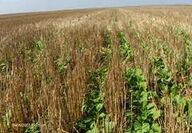
Cover crops have proven to be an intriguing production practice in modern agriculture. Cover crops have also proven to be equally perplexing. Let’s take a look at everything I think I know about cover crops, which is a little, and all that I don’t know which is considerable. What has gotten me so interested in cover crops and especially cover crops grown for grazing cattle is the testimonial I’ve heard from farmer/rancher friends of mine and others I’ve listened to at meetings who have some am...

I intentionally put a question mark behind my title “Cover Crops” for this article because I think they have raised more questions than any production practice I’ve seen in farming. I don’t think there is any doubt the production of cover crops can improve the soil. The big question is how to implement them profitably into a cropping system. In Furrow magazine recently published an article titled “Cover Crops Face Off With Fallow”. The article looks at some claims that cover crops save more m...

The Panhandle No-till Partnership recently hosted field days at numerous farms across the Panhandle. I would like to thank the Nebraska Environmental Trust and the Nebraska No-till Cadre for providing financial support for these field days. I would also like to thank Curt Roth, Art Olsen, Pat and Mark Ernest, Stetson Shreve, and Steve Tucker for allowing us to tour their farms. I’m very impressed with the quality of work the no-till crop producers are doing across the Panhandle. There are s...

Our way of life in agriculture across the breadbasket of America is being threatened by special interest groups who disagree with how we conduct our business. These special interest groups disagree with how we produce the food which feeds the world. Our image as stewards of the land and livestock is being tainted and it’s important we start telling our side of the story. These special interest groups are well organized and well funded. Their sole intention is to dictate policy so the food we pro...

The first thing I want to tell you about soil microbe testing is that this type of testing is in its infancy. Dr. Ray Ward, founder of Ward Laboratories in Kearney, has just begun to explore this type of soil testing. It’s safe to say that Ray will be learning along with the producers who send in samples for this type of soil health testing. Approximately one month ago I sent Dr. Ward soil samples from a neighbor’s winter wheat/summer fallow cropping rotation, our continuous no-till dry lan...

Stateline Producers recently hosted a two day field pea tour around the Panhandle. I joined the group to see how this year’s crop looked and to learn more about field pea production. The producer’s around the Panhandle have done an excellent job of planting, inoculating, and weed control in this year’s crop. They have done everything they can to insure a profitable crop provided Mother Nature cooperates. Byron Lemmoyne, director of Pulse USA from Bismark, North Dakota, and Brad Karlen, a field...
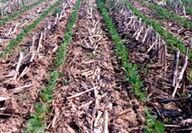
Last week I was invited to the Nebraska Ag Educators meeting in Kearney, Neb. I was invited to speak about the water conservation benefits of no-till crop production. The meeting consisted of around 200 of Nebraska’s high school agricultural education teachers and speakers invited to address the group about the many physical, chemical, and biological components that make up our soils. Dr. Ray Ward of Ward Laboratories was also invited to speak at the meeting. I had supper with Ray the night befo...

The Nebraska No-till Cadre has put together an outstanding educational opportunity for producers in Nebraska. This educational event is a bus tour departing from Kearney, Neb., on June 24, and will return to Kearney on June 27. This bus tour is partially funded through the Nebraska Environmental Trust and UNL Extension. A registration fee of $200 is required for each Nebraska participant. The registration is $400 for out of state participants. Registration includes the bus tour, hotels, and...
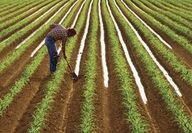
The weather in our region is always full of surprises and this spring has certainly been a dramatic turnaround from the drought conditions we were experiencing. These extremes in temperature and moisture from year to year really present a challenge for our agricultural producers in this region. This spring has been the complete opposite of what we experienced last year. I have visited with producers the last couple of days from around the Panhandle and the moisture received from this last storm...
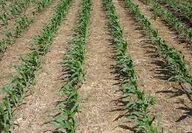
No one really knows how far this Brown Revolution can take modern agriculture in this soil health initiative. The last time our soils were really in top soil health was before the prairies were turned into farm land. Through the development of agriculture the soil’s health has declined mostly due to tillage and the removal of plants growing in the soil throughout the growing season. With the introduction of no till crop production, the elimination of tillage, use of cover and forage crops, a...